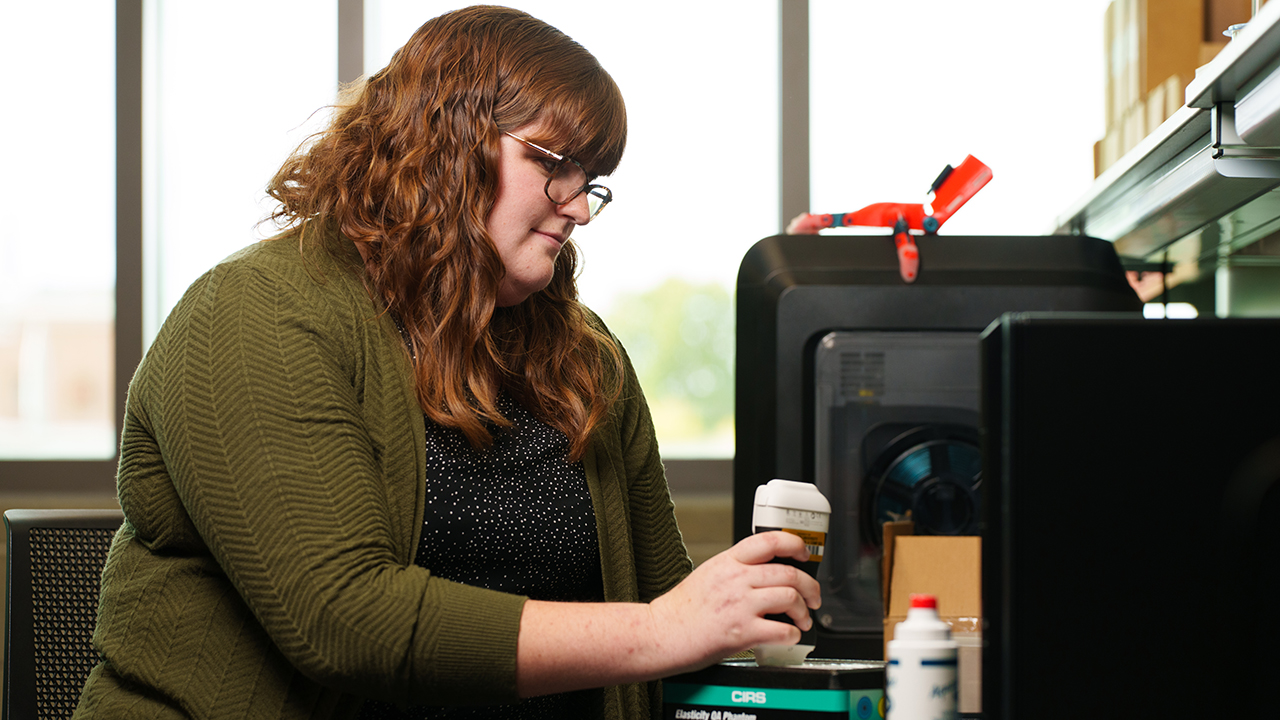OU professor awarded NSF grant for wireless 3D ultrasound imaging system project
Research could increase access to critical cancer screening tools in low-resource settings

Dr. Alycen Wiacek, an assistant professor in the Department of Electrical and Computer Engineering and the Department of Bioengineering at Oakland University, has been awarded the prestigious Engineering Research Initiation (ERI) grant for $200,000 from the National Science Foundation (NSF) for her project to develop a wireless 3D breast ultrasound imaging system for low-resource settings.
“This award will give me the opportunity to grow my lab, the Medical Acoustics for Global Health, Imaging, and Clinical translation (MAGIC) lab, here at Oakland University and work with my team of highly qualified undergraduate and graduate students to develop innovative three-dimensional (3D) imaging systems and quantitative algorithms,” Wiacek said.
“The outcomes of this award will also serve as the foundation upon which I will continue to grow my research and develop tools to expand access to high-quality, non-invasive medical imaging technologies,” she added. “I am truly excited to get started on this work and I am thrilled to have the opportunity to contribute to the medical community from an engineering lens, developing technologies that could one day reduce the global burden of breast cancer.”
Wiacek will serve as the principal investigator on the project, which will be focused on two main objectives.
The first objective will be to establish quantitative tools using both traditional signal processing and artificial intelligence to extract ultrasound-derived biomarkers from wireless ultrasound data and evaluate their ability to improve breast cancer diagnosis.
The second objective will focus on the development of a robust calibration, registration, and sensor fusion protocol to create 3D tissue volumes using a wireless ultrasound probe and a low-cost commercial sensor.
“The results of these studies have the potential to establish a new foundation for future innovation in accessible ultrasound technologies and increase access to critical cancer screening tools in low-resource settings,” Wiacek said.
According to Wiacek, bringing medical imaging technologies to remote areas of the world can be very challenging, creating stark disparities in patient access to potentially life-saving screening procedures, such as for breast cancer.
“Recently, wireless ultrasound probes have revolutionized how and where ultrasound can be used, bringing the imaging method directly to the patient’s bedside,” she said. “However, due to the complexity of the hardware, the data available from these wireless systems are limited and ultimately only represent a two-dimensional snapshot of a 3D tumor.”
To address these challenges, the goal of the ERI project is to develop a novel low-cost system capable of generating 3D ultrasound volumes at the patient’s bedside and quantitively analyze images from this system to extract features that detect cancer.
“This award will also promote the development of a hands-on ultrasound curriculum at the undergraduate level, as well as immersive and engaging ultrasound activities for elementary and middle school students, increasing awareness of ultrasound imaging and the role of engineers in the medical world,” Wiacek said.
To learn more, visit https://www.nsf.gov.

 July 12, 2024
July 12, 2024

